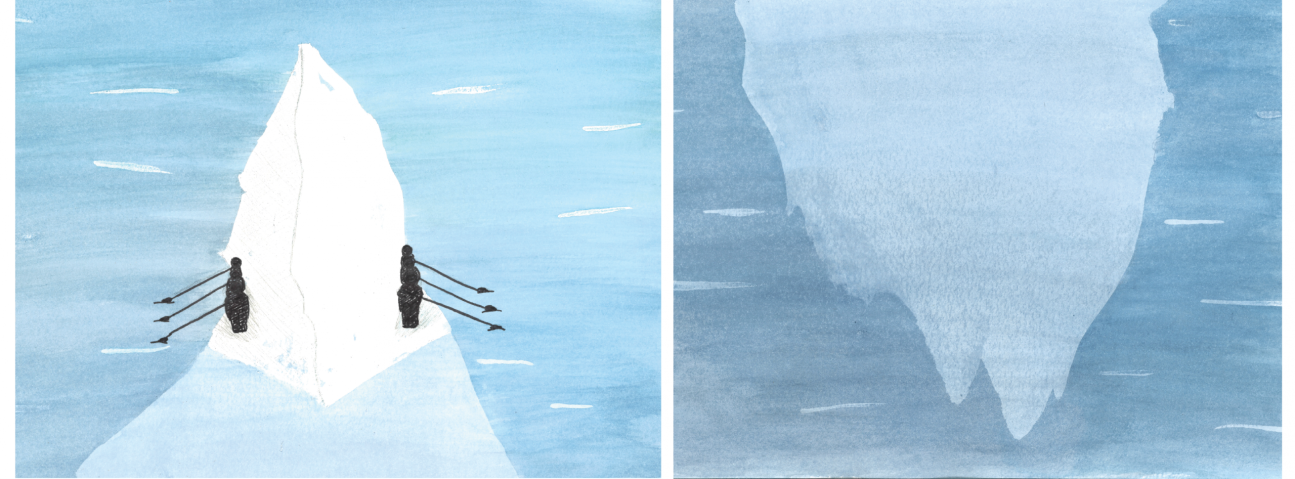
Depuis sa naissance dans les années 1990, le colloque étudiant en Littérature canadienne comparée (Comparative Canadian Literature) a été tenu bisannuellement à l’Université de Sherbrooke. Depuis 2016, nous, les étudiantes et étudiants des cycles supérieurs en Littérature canadienne comparée, l’organisons chaque année et, grâce au grand intérêt que les étudiantes et étudiants de notre et d’autres universités portent à nos thèmes du colloque, l’activité s’étale sur deux jours. Après de deux ans d’excellente collaboration avec l’Université Laval (2016-2017), nous sommes heureux de co-organiser le colloque étudiant 2018 avec des étudiantes et étudiants inscrit-e-s dans notre programme voisin en Études françaises.
Littérature canadienne comparée, ce programme bilingue, premier du genre fondé en 1963 à l’Université de Sherbrooke, vise à approfondir la connaissance des littératures et des cultures du Canada et du Québec d’un point de vue comparatif et traductologique. Rappelons-nous que c’étaient des professeurs et des auteurs à l’Université de Sherbrooke comme Ronald Sutherland, D.G. Jones et Antoine Sirois, pour n’en nommer que quelques-uns, qui ont développé une nouvelle approche pour l’étude de la littérature canadienne, soit en anglais ou en français, et que leur vision a eu un impact majeur sur les programmes en littérature canadienne et sur la recherche au Canada. Ils proposaient d’étudier la littérature canadienne à travers des méthodologies comparatives et traductologiques et ils se détournaient des approches unilingues étant caractéristiques des programmes en littérature canadienne à l’époque.
By encouraging a comparative, bilingual approach and a critical reading of Canadian writing that takes into account the social, historical and cultural background of the text, the Sherbrooke School’s approach to Canadian Literature mirrored the bilingual society of Canada. The literary journal Ellipse, founded in 1969 by D.G. Jones, Joseph Bonefant, Richard Giguère and Sheila Fishman and launched at UdeS, was devoted to francophone and anglophone poems published with their respective translation on the parallel page and thus emphasized their bilingual approach. However, the question remains how one defines Canadian Literature, or the national literature of Canada. As Joseph Pivato states in his 2011 article on “The Sherbrooke School of Comparative Canadian Literature,” the following questions have been unresolved: “Can Canadian literature be easily separated into English and French writing? Is there one national literature or two [or even more]? What is the role of translation? Is there a place for ethnic minority writing? Where is the place for the writing by First Nations people in either one of the official languages or in native languages?”
Université de Sherbrooke has been organizing and hosting graduate conferences in Comparative Canadian Literature and Translation Studies for several decades. Since then, we have been very proud to offer our graduate students this opportunity to become involved in an aspect of scholarship that is so central to academia. The university’s Comparative Canadian Literature program is unique in the world; therefore, the focus and scope of our conferences offer an equally unique opportunity for a broad range of MA and PhD students from different disciplines to come together for a scholarly exchange of ideas. Our call for papers (CfPs), which are distributed around the world, seek to encourage students from different fields such as Comparative Literature; English, Canadian, French, and Québécois Literatures; Translation Studies; Indigenous Studies; Cultural and Film Studies; and History to submit abstracts.